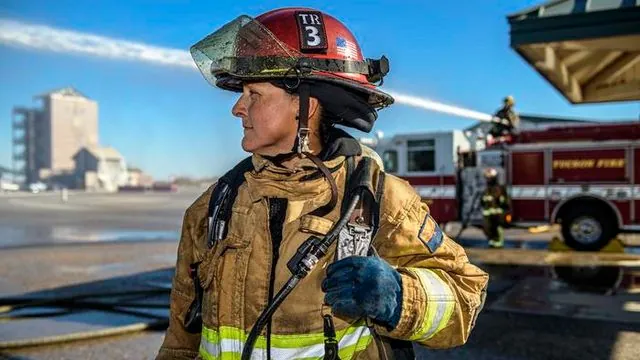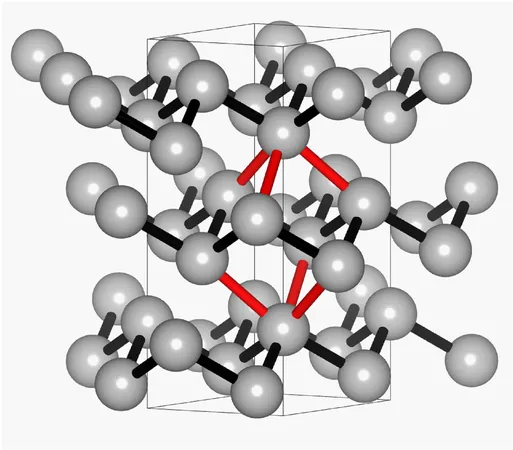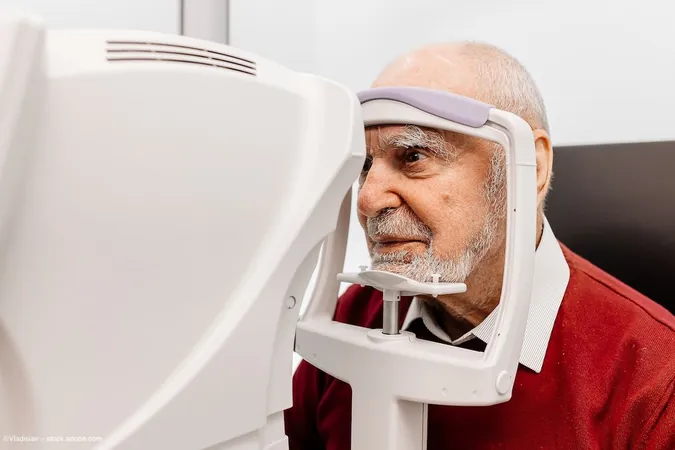
Shocking Connection: PTSD Could Be Draining Fertility in Female Firefighters!
2025-01-23
Author: John Tan
Groundbreaking Study
A groundbreaking study conducted by researchers from the University of Arizona's Mel and Enid Zuckerman College of Public Health, in collaboration with various fire service professionals, has revealed a startling link between post-traumatic stress disorder (PTSD) and significantly lower levels of anti-Müllerian hormone (AMH) among female firefighters. This hormone serves as a vital marker for ovarian reserve, indicating a woman's fertility potential and ability to conceive.
Implications of the Study
The implications of this study are profound. “These findings underscore the detrimental impacts mental health issues can have on overall health, particularly reproductive health,” stated Michelle Valenti, MPH, a doctoral student specializing in epidemiology and the program coordinator for the Fire Fighter Cancer Cohort Study's Women Firefighter Study.
Research Overview
The research paper titled "Evaluating the Effect of Depression, Anxiety, and Post-Traumatic Stress Disorder on Anti-Müllerian Hormone Levels Among Women Firefighters," recently published in the Journal of Women’s Health, provides a crucial insight into the unique challenges faced by women in a high-stress profession. Female firefighters routinely confront not only traumatic emergencies but also hazardous chemical exposures which can elevate their already heightened risk of PTSD compared to the general population.
Findings on AMH Levels
Previous investigations indicated that women firefighters exhibit lower AMH levels compared to their non-firefighting counterparts, but the causes remained elusive until now. The current analysis found striking results: women with clinical diagnoses of PTSD had their AMH levels reduced by 66%, while those struggling with anxiety experienced a 33% decline in their hormone levels.
Call for Action
These findings point to a potential pathway through which mental health issues may adversely affect reproductive health, raising alarm bells for both health care providers and fire departments alike. “This research is critical for the well-being of all firefighters,” mentioned Capt. Caitlin St. Clair from the Puget Sound Regional Fire Authority. “It empowers fire departments with the data needed to develop targeted programs aimed at reducing stress and improving the quality of life for our female firefighters.”
Women Firefighter Study
Furthermore, the Women Firefighter Study—a component of the broader Fire Fighter Cancer Cohort Study—strives to explore the myriad causes of stress, reproductive health challenges, and even cancer among women firefighters. By revealing the links between mental health and hormonal health, this research not only encourages further studies but also emphasizes the need for effective interventions.
Conclusion and Future Directions
Valenti emphasized the importance of this initiative, stating, “Our work within the Women Firefighter Study exemplifies how targeted research can illuminate the exposures that contribute to gynecological concerns. The success of our study is a testament to the commitment of our fire service partners dedicated to advancing women's health in firefighting.”
As this research unfolds, it raises urgent questions about how we can better support female firefighters and safeguard their health, highlighting an undeniable call for change in how we address mental health in high-stress occupations. Stay tuned as we continue to follow the developments in this critical area of study!




 Brasil (PT)
Brasil (PT)
 Canada (EN)
Canada (EN)
 Chile (ES)
Chile (ES)
 Česko (CS)
Česko (CS)
 대한민국 (KO)
대한민국 (KO)
 España (ES)
España (ES)
 France (FR)
France (FR)
 Hong Kong (EN)
Hong Kong (EN)
 Italia (IT)
Italia (IT)
 日本 (JA)
日本 (JA)
 Magyarország (HU)
Magyarország (HU)
 Norge (NO)
Norge (NO)
 Polska (PL)
Polska (PL)
 Schweiz (DE)
Schweiz (DE)
 Singapore (EN)
Singapore (EN)
 Sverige (SV)
Sverige (SV)
 Suomi (FI)
Suomi (FI)
 Türkiye (TR)
Türkiye (TR)